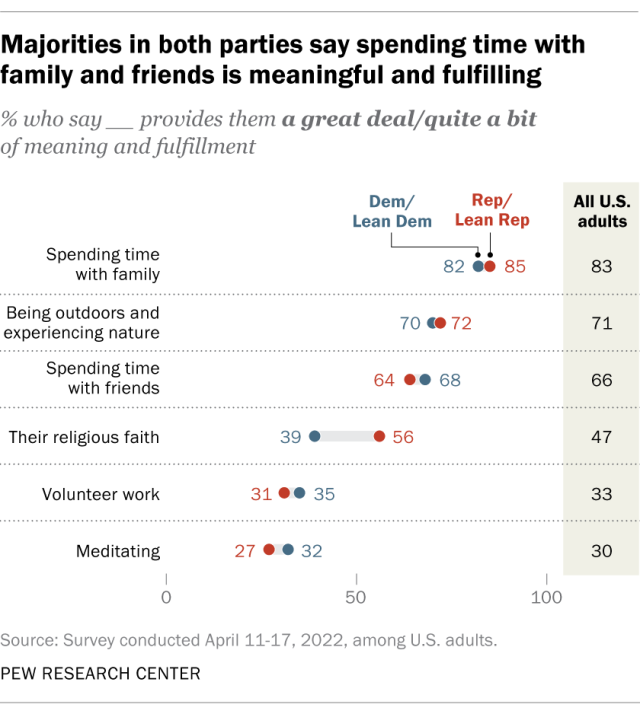Apropos to my post on Monday about how gift recipients value experiences over material gifts, Pew Research Center recently released research finding showing that spending time with family and friends was considered meaningful and fulfilling regardless of political affiliation. So taking a marketing approach that emphasizes that aspect of arts and cultural participation can be compelling to people regardless of political affiliation.
Another article provides additional context to the chart, mentioning that:
More than eight-in-ten U.S. adults (83%) say spending time with family provides them a great deal or quite a bit of meaning and fulfillment…
[…]
Similar but smaller majorities of Republicans (64%) and Democrats (68%) say the same about spending time with friends.
The share of Republicans and Democrats who say they draw a great deal or quite a bit of meaning and fulfillment from being outdoors and experiencing nature is also nearly identical (72% and 70%, respectively).
Obviously, there are differences between political parties in other aspects of life that provide a feeling of fulfillment. Research results discussing that was released about a year ago in November 2021.



Thanks for what you are doing to bring cultural change to the arts. It is so important to represent everyone.…